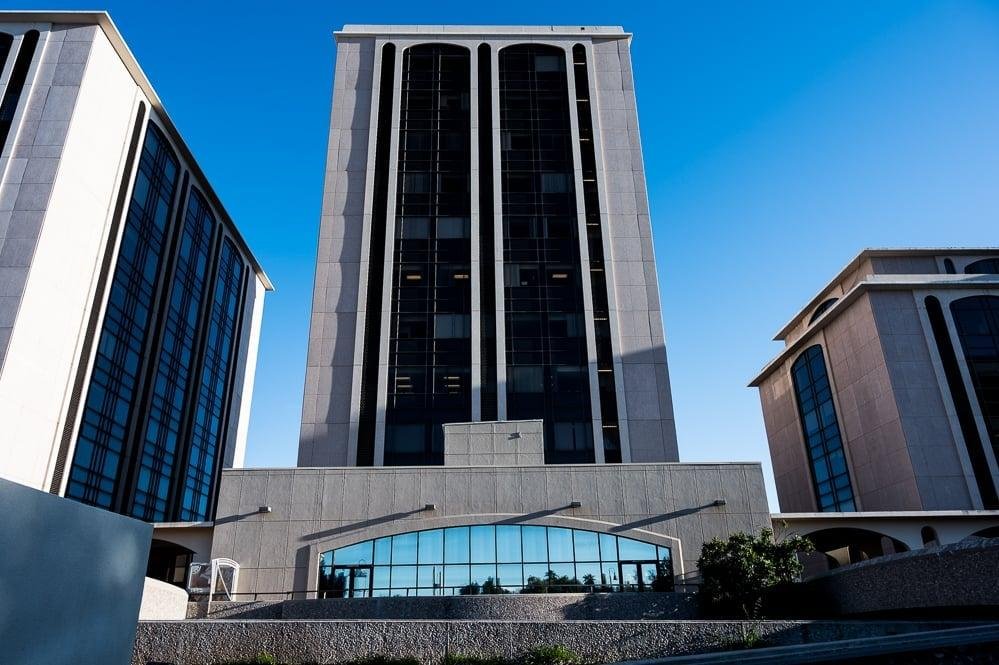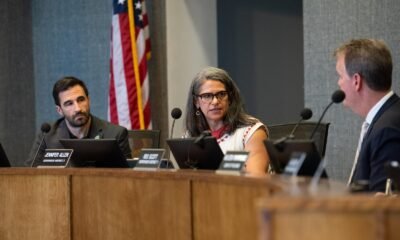border
Pima Supervisors Set to Accept Grijalva’s Resignation as Oro Valley Decides on Church School Height Waiver

The Pima County Board of Supervisors will convene on Tuesday to address two critical items on their agenda: the resignation of Supervisor Adelita Grijalva and the impact of federal funding cuts related to the COVID-19 pandemic.
Supervisor Grijalva announced her resignation on Monday, necessitated by her decision to run for Congress. She is vying for the seat left vacant by the passing of her father, U.S. Rep. Raúl Grijalva, on March 13. Grijalva’s resignation is set to take effect on April 4, prompting the board to review potential candidates to fill her position. According to state law, the replacement must belong to the same political party and reside in the district.
The supervisors plan to begin accepting applications for Grijalva’s replacement on April 2, with a submission deadline of April 7. The selection process aims to culminate in an appointment by the board at their meeting on April 15, with the chosen supervisor serving until December 31, 2026.
In another critical discussion, the board will address significant cuts to federal grants aimed at tackling COVID-19 and promoting vaccinations within Pima County. The funds, amounting to $11 billion across the U.S., are being suspended following actions by the Trump administration. Pima County officials will review the implications of these cuts, which particularly affect programs focused on health disparities that disproportionately impact communities of color.
Previously, the National Initiative to Address COVID-19 Health Disparities had allocated $6.5 million to Pima County, with approximately $903,102 now inaccessible due to the funding cuts. Additionally, a $9.6 million COV4EQUITY program, designed for equitable vaccine distribution, faced similar termination, jeopardizing numerous staff positions dependent on this funding.
While these programs aimed at addressing health disparities, the recent federal adjustments signal a shift in priorities, sparking discussions about the ongoing challenges related to public health and administration. The supervisors are also expected to deliberate on legal proceedings related to the U.S. Department of Homeland Security concerning the processing of legal asylum seekers moving through Southern Arizona, reallocating $120 million in grants designed to assist with these operations.
In matters of fiscal responsibility, County Administrator Jan Lesher will preview the budget outlook ahead of her proposed spending plan for fiscal year 2025-26, scheduled for April 25. Pima County faces challenges from state-mandated cost shifts amounting to $31 million since 2022, along with requests for an additional $72.6 million from department leaders.
Moreover, supervisors will review a proposal to adjust the list of vehicles exempt from a state law mandating government vehicles to be clearly labeled, particularly affecting undercover operations. With ongoing discussions regarding budget allocations and upcoming projects, the board seeks to ensure responsible fiscal planning as it navigates these complex issues.
In local governance, the Oro Valley Town Council will continue its hearing on the Church of the Nazarene’s appeal to exceed established height limits for a planned sanctuary expansion, while the Marana Town Council will consider a new contract for a town magistrate amidst budget discussions for 2025-2031.
Lastly, the Nogales City Council will vote on updated regulations for taxis, emphasizing the need for clearly visible meters and GPS integration to enhance fare transparency. Concurrently, the Santa Cruz County Board of Supervisors will evaluate an agreement with South32 to mitigate traffic issues caused by water released into Hardshaw Creek, stemming from ongoing mining operations in the region.

















